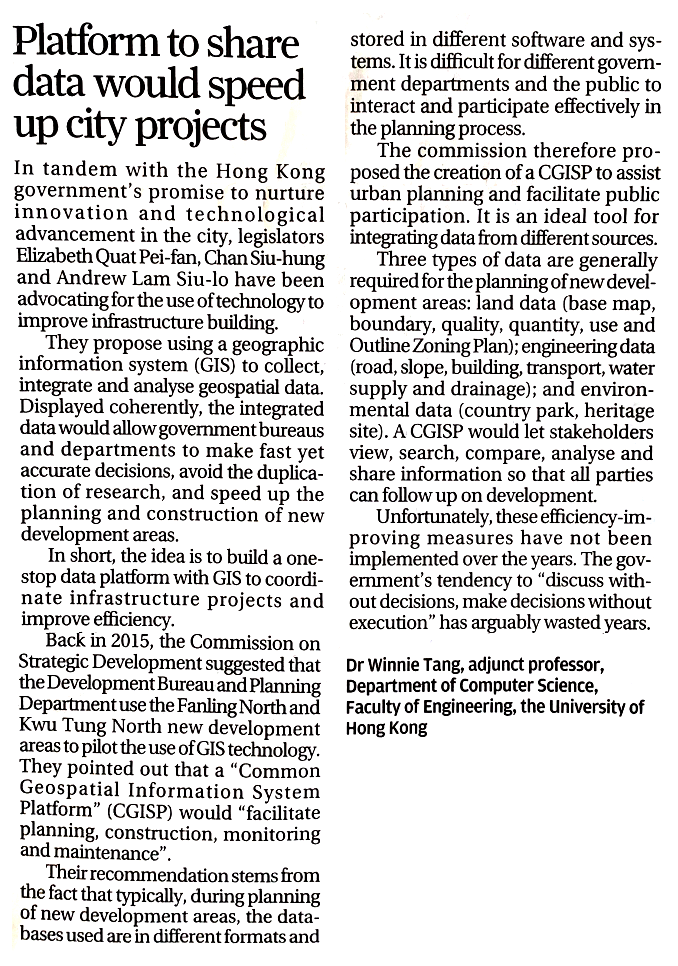網上版請按此

Platform to share data would speed up city projects
In tandem with the Hong Kong government’s promise to nurture innovation and technological advancement in the city, legislators Elizabeth Quat Pei-fan, Chan Siu-hung and Andrew Lam Siu-lo have been advocating for the use of technology to improve infrastructure building.
They propose using a geographic information system (GIS) to collect, integrate and analyse geospatial data. Displayed coherently, the integrated data would allow government bureaus and departments to make fast yet accurate decisions, avoid the duplication of research, and speed up the planning and construction of new development areas.
In short, the idea is to build a one-stop data platform with GIS to coordinate infrastructure projects and improve efficiency.
The Elizabeth Line in the UK, one of the largest infrastructure projects in Europe, is also managed using this advanced technology.
Back in 2015, the Commission on Strategic Development suggested that the Development Bureau and Planning Department use the Fanling North and Kwu Tung North new development areas to pilot the use of GIS technology. They pointed out that a "Common Geospatial Information System Platform" (CGISP) would "facilitate planning, construction, monitoring and maintenance".
Their recommendation stems from the fact that typically, during the planning of new development areas, the databases used are in different formats and stored in different software and systems. It is difficult for different government departments and the public to interact and participate effectively in different stages of the planning process.
The commission therefore proposed the creation of a CGISP to assist urban planning and facilitate public participation. It is an ideal tool for integrating spatial data from different sources.
Three types of data are generally required for the planning of new development areas: land data (base map, boundary, quality, quantity, use and Outline Zoning Plan); engineering data (road, slope, building, transport, water supply and drainage); and environmental data (country park, heritage site). A CGISP would allow stakeholders to view, search, compare, analyse and share project information so that all parties can follow up on the development.
Unfortunately, these efficiency-improving measures have not been implemented over the years. The government's tendency to "discuss without decisions, make decisions without execution" has arguably wasted years of Hong Kong's smart city development.
Dr. Winnie Tang
Adjunct Professor, Department of Computer Science, Faculty of Engineering; Department of Geography, Faculty of Social Sciences; and Faculty of Architecture, The University of Hong Kong